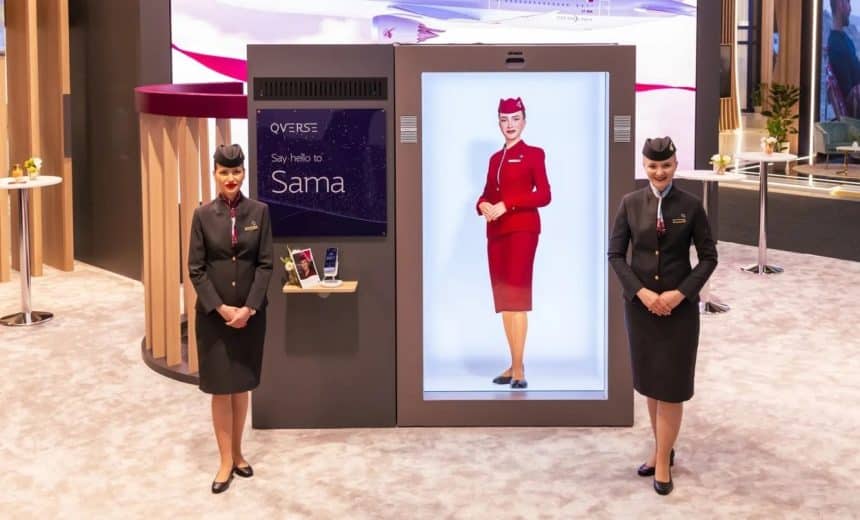Prepare for a new addition to aviation travel. Qatar Airways has launched Sama 2.0, the world’s first AI-powered cabin staff member. This improvement advances the passenger experience by providing real-time information, personalized recommendations, and multilingual help.
Sama (Sky in Arabic) is a conversational AI who was introduced at the ITB Berlin travel and trade expo. While still in her infancy, she is ready to answer real-time queries, including your standard FAQs, comment on places, and provide assistance recommendations, among other things.
So, who is Sama 2.0?
Sama 2.0 is Qatar Airways’ virtual assistant, powered by cutting-edge artificial intelligence (AI). Sama 2.0, created in conjunction with UneeQ, a pioneer in AI digital human technology, It is more than simply a voice assistant; it is a virtual member of the cabin crew. Passengers can interact with Sama 2.0 using the Qatar Airways mobile app and the airline’s revolutionary metaverse technology, QVerse.
Sama 2.0: Technology and Human Connection
Sama, which is accessible via QVerse, Qatar Airways’ digital platform, as well as the airline’s app. “This is a watershed moment in the successful synergy of technology and human connection—not only for Qatar Airways but for the industry as a whole,” Qatar Airways Vice President Marketing Babar Rahman said in a statement. UneeQ CEO Danny Tomsett described her as a testament to the endless possibilities of AI.” Which is also capable of delivering personalized and engaging interactions that mirror human conversation.
- Advertisement -
With regards, Chief Commercial Officer Thierry Antinori said in a recent interview with Bloomberg TV that the demand is not exclusively motivated by a desire to make up for lost time or exact revenge on previous restrictions.
According to the business, Sama communicates via generative AI and Synanim, UneeQ’s real-time, lifelike animation engine. According to Precedence Research, the global AI in the aviation market was valued at $653.74 million in 2021. It is predicted to grow to $9,985.86 million by 2030, with a CAGR of 35.38% from 2022 to 2030.



